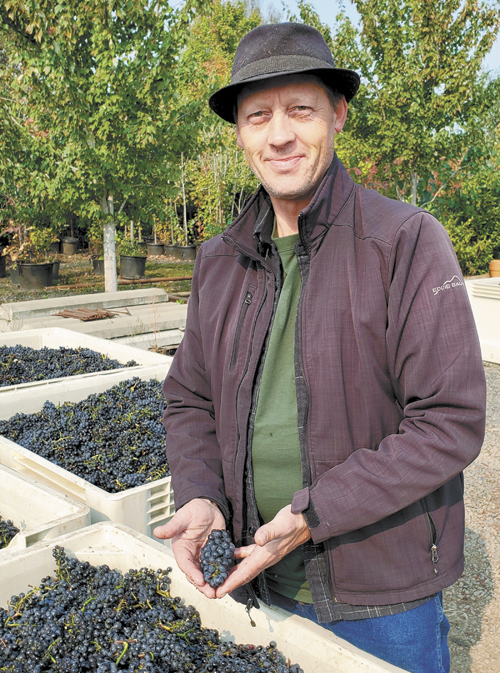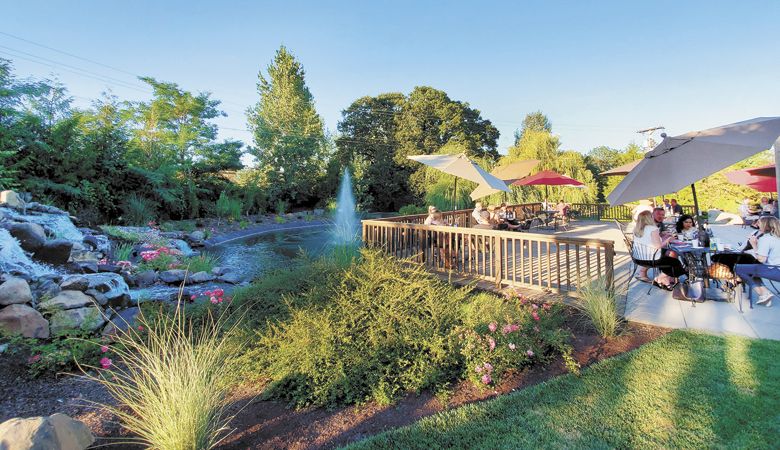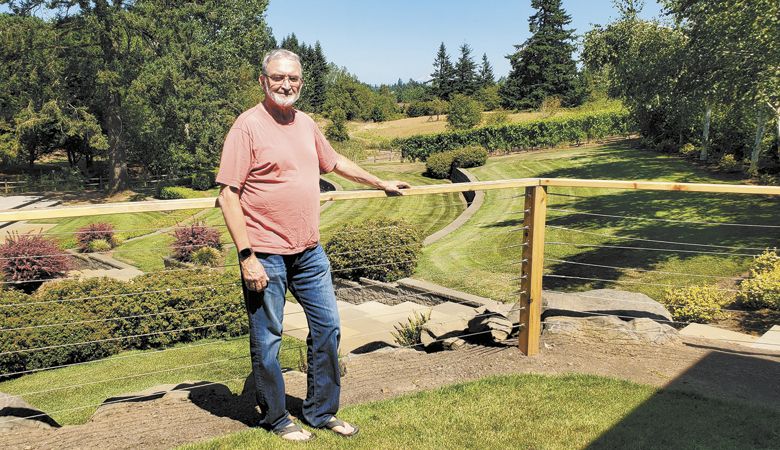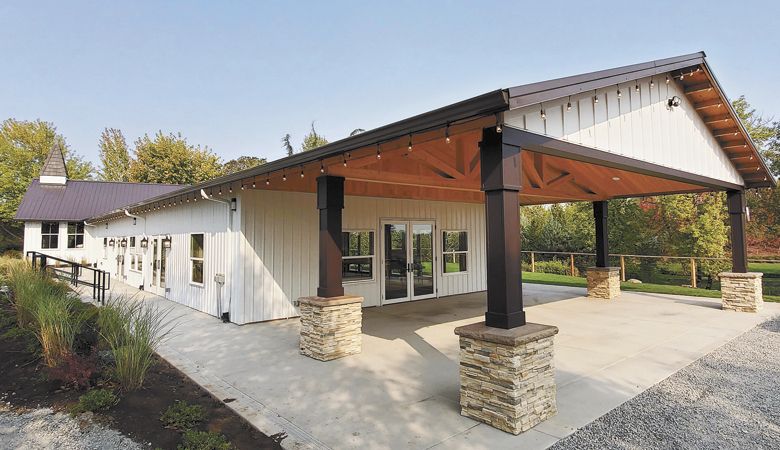Aurora Oasis
Wine and food in a historic hub
There’s no denying the history surrounding Aurora, the small Willamette Valley town once billed a “second Eden.” Situated between Canby and Woodburn beside the Pudding River, this town has never been large — the current population is just under 1,000 — but big things were most certainly expected of it.
In 1856, tailor-turned-preacher William Keil believed the setting fit for a new commune. Driven by spiritual beliefs and a charismatic personality, he founded Aurora Colony, named after his daughter. Keil bought several hundred acres — as was customary for white males at the time, benefiting from both a supportive federal government and the forceful displacement of indigenous communities like the Kalapuya. He transformed the location into his own utopia, which ultimately attracted 600 people but dissolved by 1883, after bouts with smallpox and Keil’s own passing.
People visiting Aurora today can experience a taste of that former life. Visitors pull off of the nearby interstate and are instantly transported to a world resembling a postcard from the late 19th century. It’s the kind of place where elementary students on field trips churn butter and marvel at giant Conestoga wagon wheels. It doesn’t jump to mind as a place for a premium glass of Pinot Noir, but that seems to be changing.
Wine and Aurora don’t necessarily go hand-in-glove, but given the town’s Willamette Valley location, there is potential. Agricultural endeavors have taken place here for generations. Aurora Colony Vineyards began about a decade ago and has since become a real gathering place, not just for tastings but weddings and concerts. “The name came naturally from the location,” says owner John Moore. “The Colony’s rich history in Aurora is a wonderful part of Oregon history, and I wanted to feature that.”

The estate vineyard comprises 18 acres of vines, the first rows of which were planted in 2002. Present plantings include Pinot Noir (clones 117 and 777), Sauvignon Blanc, Viognier, Muscat and Chardonnay. Over the next year, the plan is to establish 17 additional acres, including new Pinot Noir clones as well as Gamay Noir and some Pinot Blanc. “We do source some grapes from other AVAs in the Willamette Valley as well as outside of the Willamette Valley, but we are focused on creating more estate wines in the future,” says Aurora Colony winemaker David Anderson.
Production levels number about 3,000 cases annually, with the intention of doubling within the next five years. Aurora Colony’s maiden vintage was 2011, one so relatively cool and late it seems more like a lifetime ago than just a decade.
A major draw for the label is its food program, bolstered by The Kitchen, a restaurant-level cooking space built into the tasting room. Moore calls it a perfect way to showcase the work of the label’s Cordon Bleu-trained chef. “When featured with our estate and reserve wines, the chef’s menu, weekly specials and Friday evening dinners with live music and concerts have been very popular,” he says.
Aurora Colony has joined many of the purveyors sharing this part of the Valley to showcase the bounty. The list includes Ebner’s Custom Meats in Canby and Pudding River Chocolates. Choosing the music and events route is a nod to the old Aurora Colony days, as the commune’s band in the mid-1800s was so popular it was known throughout the Northwest. The winery is able to host concert-like shows, with a natural amphitheater and room for hundreds of visitors.
A host of musicians are set to take the Aurora Colony Vineyards stage this summer. The most noteworthy is Tony Starlight, a Portland institution known for performances that fall somewhere between supper club and variety show. Many have compared Starlight’s shows to what Vegas-goers enjoyed along The Strip during the heyday of the Rat Pack.
“This large event space is perfect for concerts, and when Tony told us he was headed back to Portland this summer and was interested in playing at our winery again, we knew the new space would be perfect,” says Aurora Colony tasting room manager Kelly Trout.
Aurora Colony is part of the Cascade Foothills Winegrowers, an organization made up of some 14 growers and wineries. Others include Whiskey Hills, Hanson Vineyards, Pudding River Wine Cellars, Vitis Ridge and more. These growers all reside on the east side of I-5 in the northern Willamette Valley, with the Cascade Range looming just beyond. It’s a generally lower elevation setting, tracing the river bed and those of adjacent tributaries. And, as the organization likes to claim, wine tasting here tends to be a less-crowded affair.
Fellow Cascade Foothills labels seem eager to honor the history of this unique pocket of the Valley, once a beehive of settler activity. Pheasant Run, Aurora Colony’s nearest neighbor, occupies a beautiful building about a mile away. It was originally built for the Portland World’s Fair and painstakingly taken apart and reconstructed in Aurora thereafter. Setting foot inside evokes a bit of time travel, especially amid the rather quiet atmosphere of Aurora. This is not Napa, nor McMinnville. It’s a sleepy town with several wineries and many relics relating to the days of Keil and his followers.
If You Go
In addition to the many historic sites in town, there are a few other stops worth considering in and around Aurora.
This downtown winery, open weekends, pours Pinot Gris, Chardonnay and Pinot Noir made from nearby vineyards. The winery also specializes in heftier red blends from Walla Walla fruit. Some 10% of the label’s profits go toward charities and nonprofits in the region.
A bunny-inspired café that launched in 2009, White Rabbit makes cupcakes, specialty sandwiches, homemade pies, pastries, quiche and more. It’s a great spot for a coffee break if you need to rest the palate or increase your energy level.
Set in an addition to an 1865 farmhouse, this restaurant features the work of chef Steve Head. The menu includes everything from cod fish tacos to chicken and dumplings. There’s also a decent by-the-glass list, featuring some area wineries.
You can’t really go to Aurora without getting into a yesteryear mindset. There are a handful of great antiquing options within town, along with some cool foraging spots like Aurora Mills Architectural Salvage.













